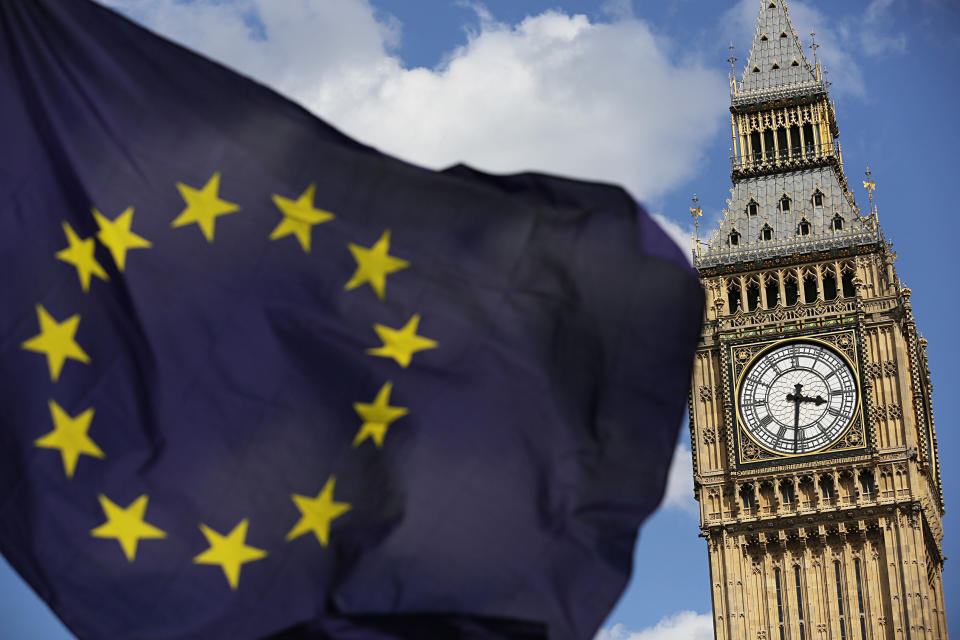Is Brexit to blame for record low October for shops?

Despite prediction from the doomsayers of an economic meltdown if the UK voted to leave the EU, things have been surprisingly calm since the referendum vote – but that looks like it’s about to change.
Recent figures from the all-important retail sector point to a worrying slowdown that could have wider ramifications for the UK economy, which is falling behind eurozone and the global economy.
Figures released today revealed British retailers have seen growth in non-food sales hit a record low, as consumers opt for experiences over shopping sprees ahead of the Christmas season.
The British Retail Consortium (BRC) and KPMG said sales of non-food items grew by 0.2% in the year to October – the lowest reading since records began in January 2011.
The slump came amid a dismal month for retailers, with like-for-like retail sales dropping 1% in October after rising 1.7% over the same period last year.
Total sales also struggled, slipping 0.2% last month to the lowest level since May.
The Bank of England put up interest rates by 0.25% last week due to record low unemployment and rising inflation.
But some economists are worried the rate rise could have a negative impact on the fragile state of the economy, which is growing at a slower pace than it did last year, in fact slower than most EU countries and underperforming the global economy more generally.
The UK retail sector gives a worrying indication of a wider malaise, especially as a no-deal Brexit starts to look like a real possibility.
The Confederation of British Industry (CBI) recently reported the biggest drop in retail sales since the last recession in 2009.
The announcement came on the back of the Office for National Statistics (ONS) announcing that retail sales had dropped a higher than expected 0.8% in September.

The retail sector is an important segment of the UK economy, with about 3 million people employed in 300,000 retail outlets, and one that potentially faces big consequences from Brexit.
If anything, the effects of the referendum are already being felt, and could even push the UK into recession.
With a hard Brexit and a ‘no-trade deal’ scenario looming the UK retail sector is facing a cliff edge; increasing price pressure could only make things worse and potentially trigger a full-blown recession with significant consequences for employment and output.
The weaker pound in the aftermath of Brexit has put the retail industry under pressure, boosting stores’ import costs but with the intense competition restricting price increases.
And yet, according to the ONS, store prices continue to rise across all types, reaching a year-on-year 3.3% non-seasonally adjusted growth level – the highest since 2013.
Rising inflation due to currency devaluation has put a strain on households’ spending, some of which was already struggling to meet credit commitments as pointed out by the Financial Conduct Authority last month.

Despite Brexiteers’ initial enthusiasm about how a weaker pound would be good for exports, the effect for the retail sector is proving to be serious as retailers are beginning to really feel the pinch from higher inflation.
On the whole, the negative impact of Brexit on exchanges rates, on the political landscape, and on international trade agreements, is already causing short-term damage to the UK economy, which will be unlikely to thrive in the longer run either.
Volatility of the exchange rate against the euro and US Dollar is here to stay as the negotiations carry on, especially as they near the finish next year.
This reflects market uncertainty on the consequences – both politically and economically – of leaving the EU with a potential sell-off in sterling denominated assets.
This could also be reflected in the volatility of sterling against major currencies and financial markets as a whole, making the sterling devaluation persistent in the medium term.
In the longer term, the economic consequences will depend on the deal, if there is a deal.
With 55% of the UK’s trade with EU countries and 30% with countries that have agreements with the EU, agreements which should be re-visited in case of a Brexit, putting together trade deals that are as good will be complex and lengthy.
And arguably, leaving the single market would place the UK in a worse situation in discussing trade agreements.
The retail sector paints a worrying picture for the UK economy, one that needs heeding as the negotiations continue over a Brexit deal.
Daniele Bianchi is assistant professor of finance at Warwick Business School. He tweets from @WhitesPhD.

 Yahoo Finance
Yahoo Finance 

